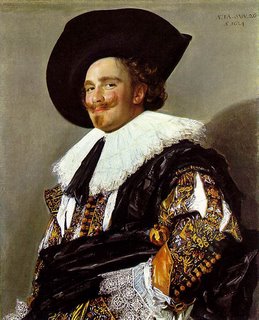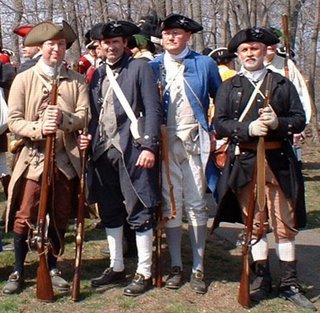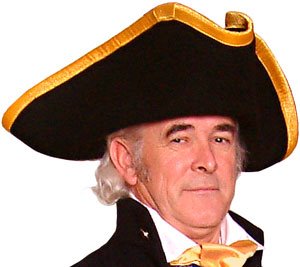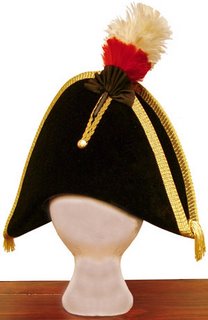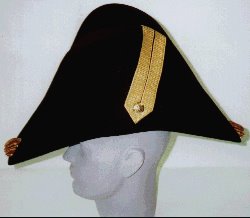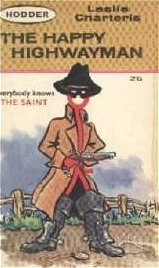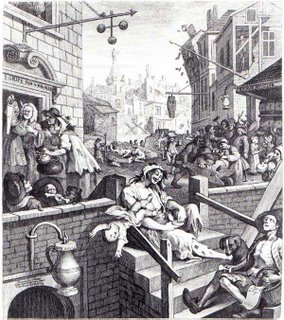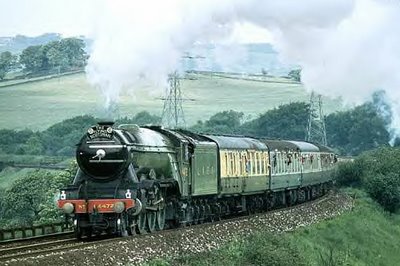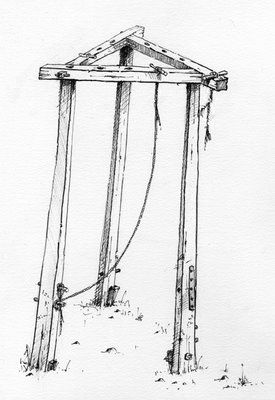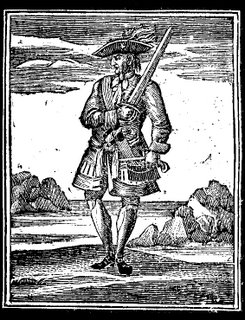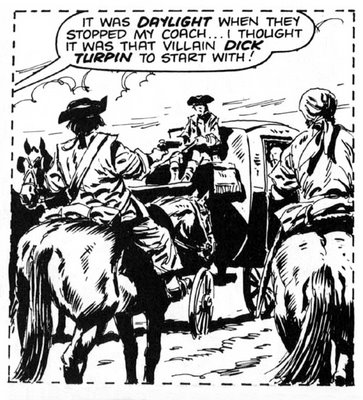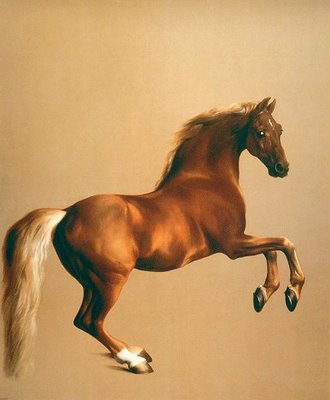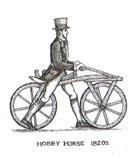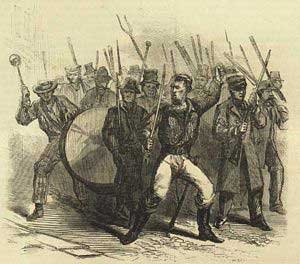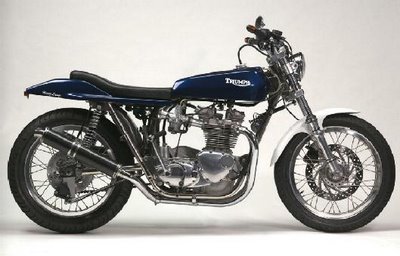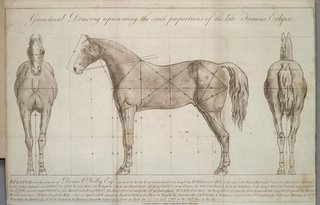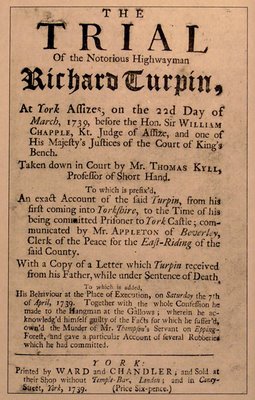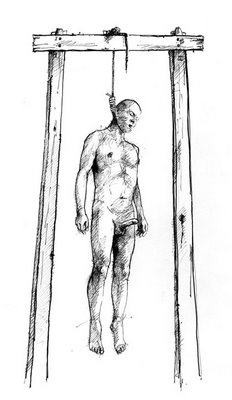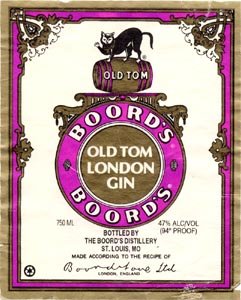ACORN. You will ride a horse foaled by an acorn, i.e. the gallows, called also the Wooden and Three-legged Mare. You will be hanged.--See THREE-LEGGED MARE.
CHATTS, CHATES. According to the canting academy, the gallows.
CLIMB. To climb the three trees with a ladder; to ascend the gallows.
To DANGLE. To be hanged: I shall see you dangle in the sheriff's picture frame; I shall see you hanging on the gallows.
DEADLY NEVERGREEN, that bears fruit all the year round. The gallows, or three-legged mare. DERRICK. The name of the finisher of the law, or hangman about the year 1608.--'For he rides his circuit with the Devil, and Derrick must be his host, and Tiburne the inne at which he will lighte.' Vide Bellman of London, in art. PRIGGIN LAW.--'At the gallows, where I leave them, as to the haven at which they must all cast anchor, if Derrick's cables do but hold.' Ibid.
DISMAL DITTY. The psalm sung by the felons at the gallows, just before they are turned off.
To DIE DUNGHILL. To repent, or shew any signs of contrition at the gallows.
DIE HARD, or GAME. To die hard, is to shew no signs of fear or contrition at the gallows; not to whiddle or squeak. This advice is frequently given to felons going to suffer the law, by their old comrades, anxious for the honour of the gang.
GREGORIAN TREE. The gallows: so named from Gregory Brandon, a famous finisher of the law; to whom Sir William Segar, garter king of arms (being imposed on by Brooke, a herald), granted a coat of arms.
HOLBORN HILL. To ride backwards up Holborn hill; to go to the gallows: the way to Tyburn, the place of execution for criminals condemned in London, was up that hill. Criminals going to suffer, always ride backwards, as some conceive to increase the ignominy, but more probably to prevent them being shocked with a distant view of the gallows; as, in amputations, surgeons conceal the instruments with which they are going to operate. The last execution at Tyburn, and consequently of this procession, was in the year 1784, since which the criminals have been executed near Newgate.
KETCH. Jack Ketch; a general name for the finishers of the law, or hangmen, ever since the year 1682, when the office was filled by a famous practitioner of that name, of whom his wife said, that any bungler might put a man to death, but only her husband knew how to make a gentleman die sweetly. This officer is mentioned in Butler's Ghost, page 54, published about the year 1682, in the following lines:
Till Ketch observing he was chous'd,
And in his profits much abus'd.
In open hall the tribute dunn'd,
To do his office, or refund.
Mr. Ketch had not long been elevated to his office, for the name of his predecessor Dun occurs in the former part of this poem, page 29:
For you yourself to act squire Dun,
Such ignominy ne'er saw the sun.
The addition of 'squire,' with which Mr. Dun is here dignified, is a mark that he had beheaded some state criminal for high treason; an operation which, according to custom for time out of mind, has always entitled the operator to that distinction. The predecessor of Dun was Gregory Brandon, from whom the gallows was called the Gregorian tree, by which name it is mentioned in the prologue to Mercurius Pragmaticus, tragi-comedy acted at Paris, &c. 1641:
This trembles under the black rod, and he
Doth fear his fate from the Gregorian tree.
Gregory Brandon succeeded Derrick. See DERRICK.
MORNING DROP. The gallows. He napped the king's pardon and escaped the morning drop; he was pardoned, and was not hanged.
NEWMAN'S LIFT. The gallows.
NUBBING. Hanging. Nubbing cheat: the gallows. Nubbing cove; the hangman. Nubbing ken; the sessions house.
PIT. The hole under the gallows, where poor rogues unable to pay the fees are buried.
SCAPEGALLOWS. One who deserves and has narrowly escaped the gallows, a slip-gibbet, one for whom the gallows is said to groan.
SUSPENCE. One in a deadly suspence; a man just turned off at the gallows.
THREE-LEGGED MARE, or STOOL. The gallows, formerly consisting of three posts, over which were laid three transverse beams. This clumsy machine has lately given place to an elegant contrivance, called the NEW DROP, by which the use of that vulgar vehicle a cart, or mechanical instrument a ladder, is also avoided; the patients being left suspended by the dropping down of that part of the floor on which they stand. This invention was first made use of for a peer.
TOPPING CHEAT. The gallows.
TOPPING COVE. The hangman.
from A Dictionary of the Vulgar Tongue
Captain Grose (1811)

